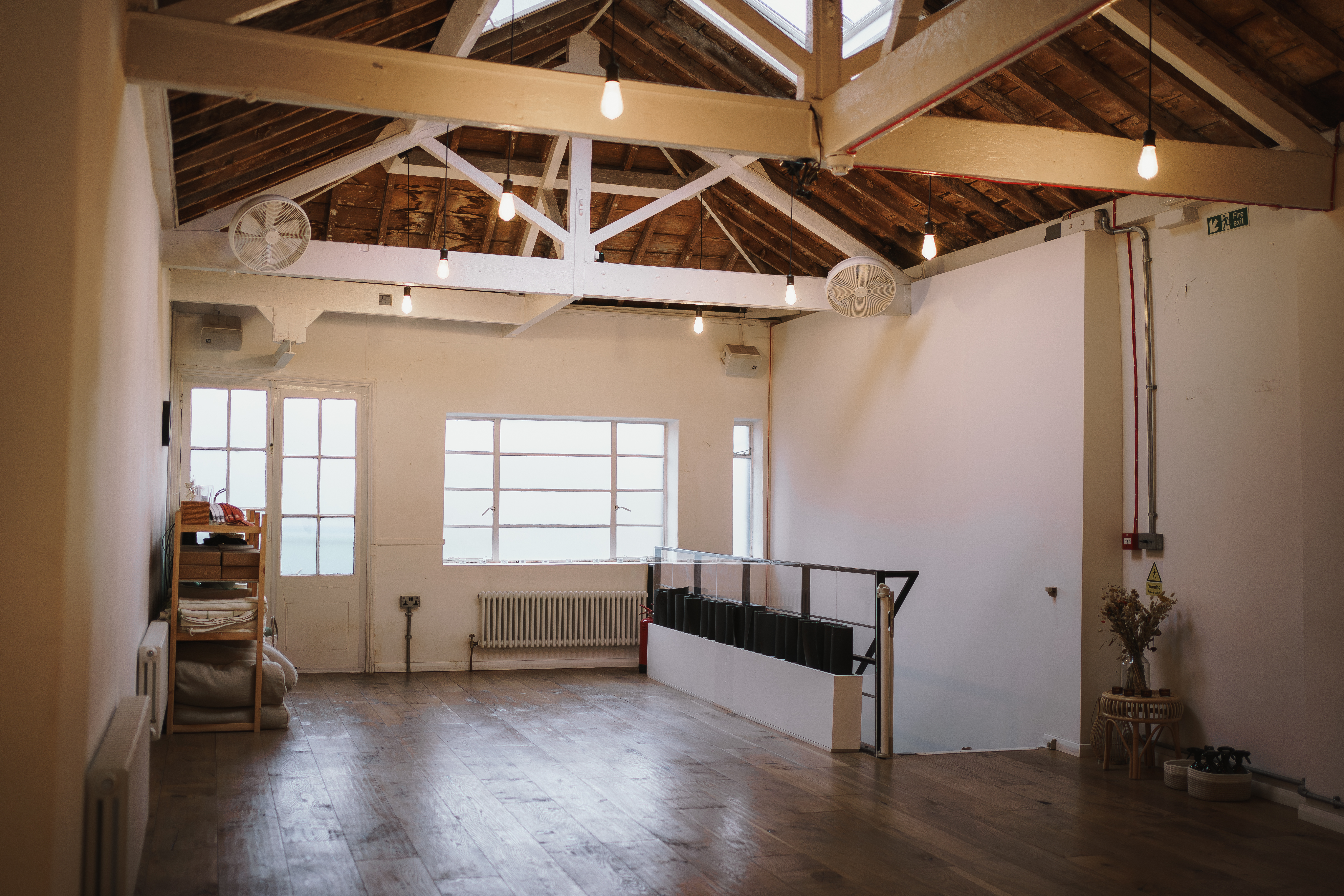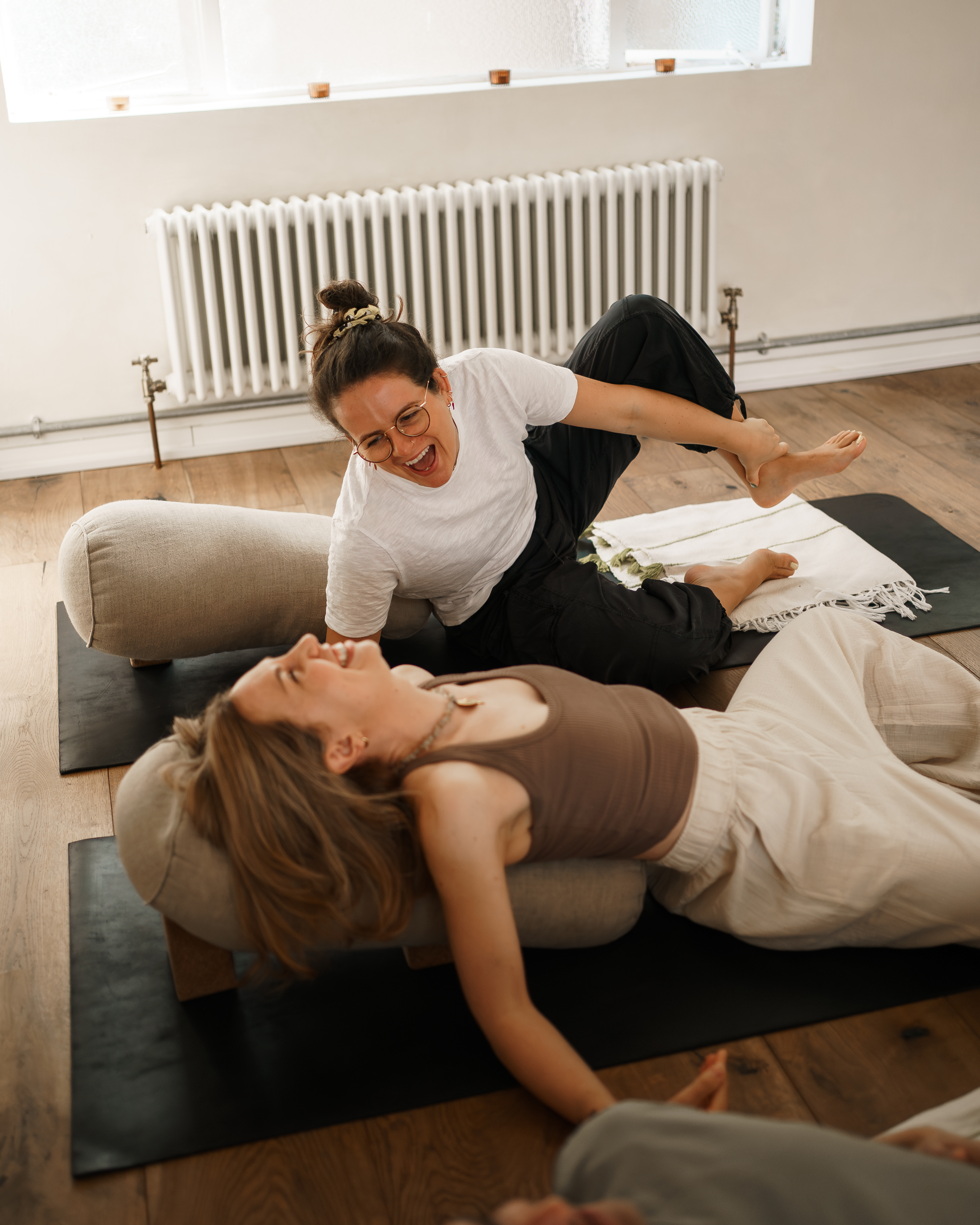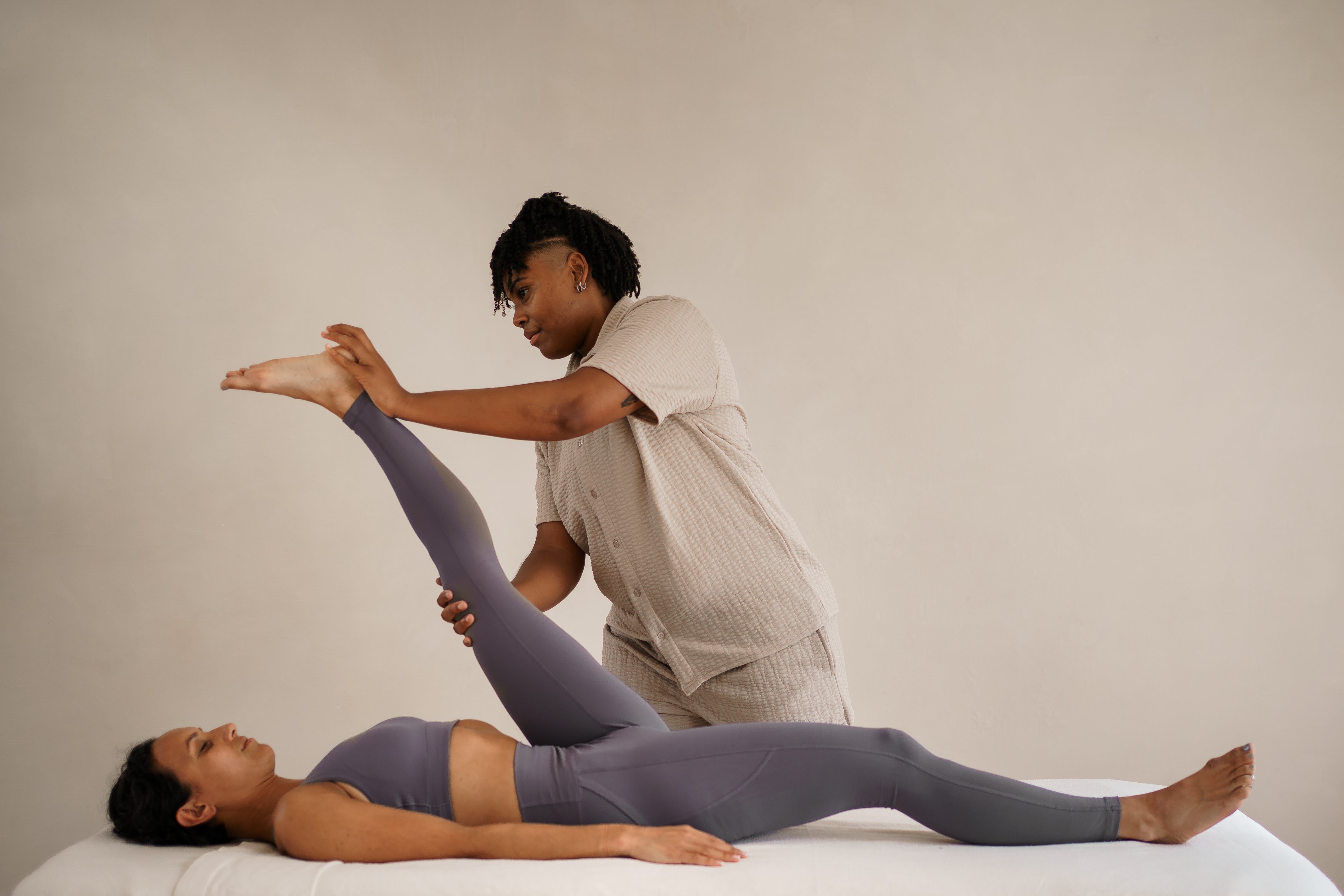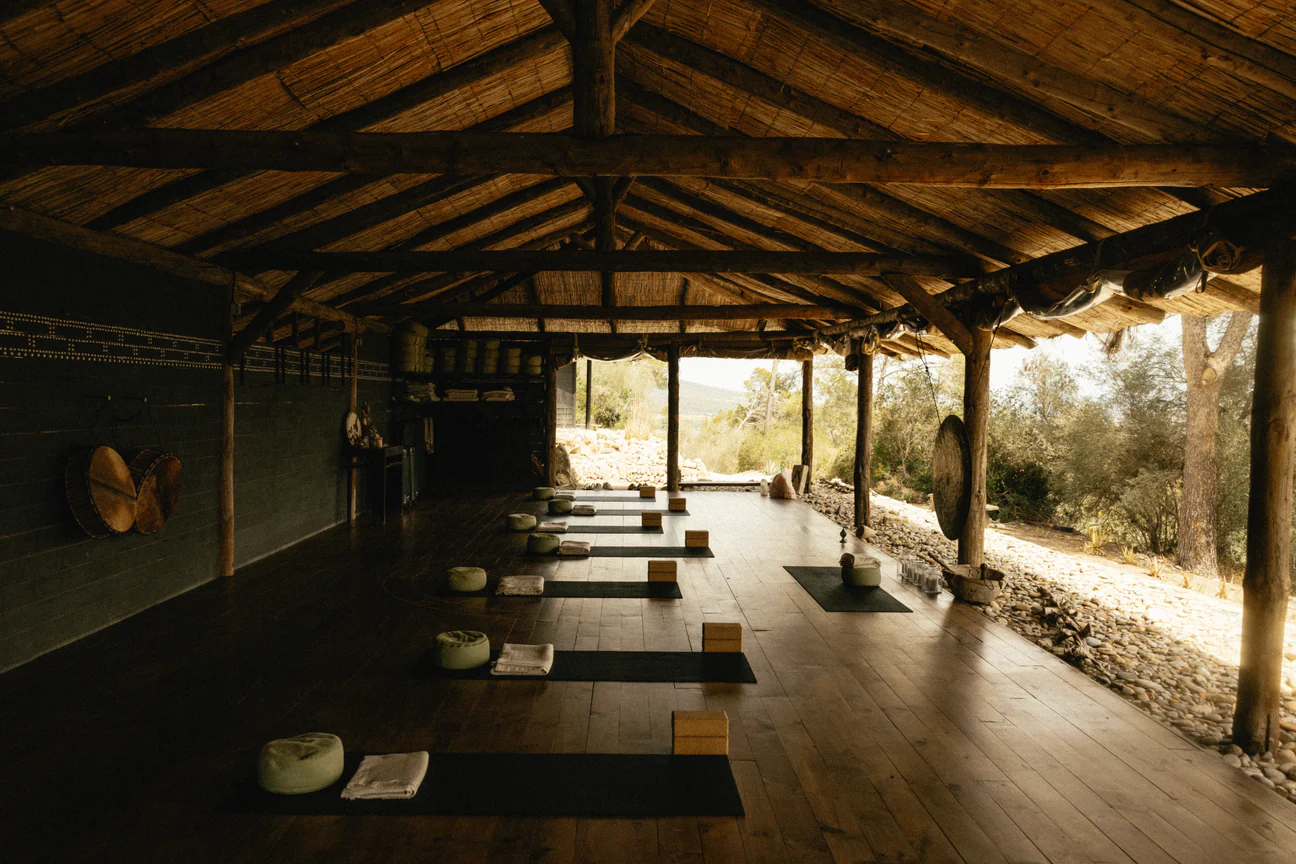At the height of the first COVID lockdown, I signed up for an online yoga teacher training. I had a lot of time on my hands (we all did), and I wanted to dive deeper into the practice of Yin yoga. I was also feeling alone—the world felt fractured, with each of us so far away from one another—and I was looking for connection and grounding.
But by the time the course started, the world seemed even more fractured. George Floyd had been murdered for all of us to stream. People around the world were rising up in protest. Activists and educators were inviting us to listen and learn. Stories of racial injustice were cropping up across all worlds, all industries, all walks of life.
I felt heavy and electrified at the same time. I was buzzing with grief, anger, inspiration, and urgency. I couldn’t stop scrolling. I wanted to be a part of the movement. I wanted to do the work and show up for my friends and all the people I’ll never meet, but who have been suffering under white supremacy.
Still, I had committed to this training. This was the first time I’d invested in my yoga study in years, and I didn’t want to miss out on the opportunity to learn from teachers I looked up to.
I found myself drifting in and out of the course, gravitating towards my phone, and struggling to stay still. My mind was with the people in the streets.
And then someone in the group named it. She said she was finding it hard to concentrate, that she couldn’t pretend everything was fine when the world clearly wasn’t.
And the teacher—without skipping a beat—said something like, we’re in a bubble here. What’s happening outside has nothing to do with this space.
Immediately, the people-pleasing and shame crept in. Oh, of course. How could I be so inattentive and lazy? I need to be more disciplined—I need to focus and concentrate on this. That’s the yoga.
It took me a while to realise that I was actually silencing my moral compass to keep to the status quo. I was in the early stages of unlearning and unravelling white supremacy’s grip on my life, and I hadn’t considered that it could have its hands wrapped around the practice I loved so dearly.
If someone is telling you that yoga isn’t social justice, who and what are they centring?
Ironically, this teacher was asking us to honour our students’ intuition—to create space for inner observation and internal review so that our students could move towards authenticity in their Yin practice. Yet, when that student followed her intuition, she was told to self-sacrifice. Don’t trust your intuition. Listen to me. I know. You don’t.
Looking back, I wish I’d said something. I wish I’d backed that student up and had trusted myself more. But that moment marked something for me. It was the start of a long, slow unravelling. It made me ask:
What kind of space am I trying to build? What kind of teacher am I trying to be? Am I willing to centre comfort over truth?
In a yoga class, you might hear a teacher say things like ‘lean into the discomfort.’ Sometimes that’s a very physical experience. Sometimes it’s the nuisance of a monkey mind. Almost always, your discomfort will point you in the direction of truth.
But not all discomfort is treated equally.
We’re encouraged to sit with the discomfort of a long asana hold, to breathe through shaking legs, to be with the unease of silence. We speak big words about introspection, non-attachment, and shadow work, and yet—when the discomfort comes from confronting our conditioning, when it asks us to look at our privilege, our complicity, our inherited beliefs—that’s often where the invitation ends.
That’s where “neutrality” steps in.
Somewhere along the way, yoga became an escape. A way to check out instead of check in. A place to feel good, not deeply. And I get it—life is overwhelming. People are tired. But I don’t believe ease and accountability are at odds. I don’t believe we have to bypass what’s hard in order to heal.
Yoga is, and always has been, a practice of liberation. At its roots, it’s a radical system for awakening—of looking clearly at the world, the self, and the ways we are all interconnected. In the Bhagavad Gītā, Krishna tells Arjuna that action rooted in dharma—right action, justice, and collective duty—is essential. Yoga doesn’t ask us to turn away from the world’s suffering; it asks us to meet it with presence, courage, and compassion.
So when I started dreaming up Sāmya Studios, I knew I didn’t want our space to be ‘apolitical’ or ‘neutral.’ I knew I didn’t want to create a space where we encouraged folks to leave their worries at the door. I didn’t want to ask our teachers to sacrifice their values so that the rest of us could be comfortable in our ignorance or inaction.
That moment years ago was the beginning of something. It wasn’t an instant transformation but rather a stitch that became undone. And the more I pulled, the more I began to unravel what I thought I knew about yoga—and rebuild what it could be.
I think about it often now as a studio owner—like when someone walks out of class because a teacher wears a Free Palestine shirt. Or when I get an email saying, “politics should be kept out of wellness spaces.” Or when a student says they’ll never come back to our studio because of our stance.
And I still feel the pull sometimes to smooth things over. To make myself and the studio more palatable. To make discomfort easier to digest.
But I don’t because the truth is that there is no neutral.
Silence is a stance.
I often think about the version of me who stayed quiet back then—and how much we lose when we mistake comfort for care, silence for healing. Or when we act as though our wellbeing exists outside of the systems of power and suffering around us.
This practice was never meant to be a tool for escape. It was meant to wake you up and remind you that your personal wellbeing is wrapped up in mine. Yoga is a tool to get resourced—to ground, to feel, to remember what matters—so that we can show up in the world more authentically and take right action in our own way.
Yoga isn’t about bypassing what’s uncomfortable or escaping what’s happening beyond the four walls and 60 minutes of a yoga class—it’s about learning how to meet the world with greater awareness, compassion, and resilience.
It’s not about being right, but being in relationship. It’s about being willing to listen. To stay open. To hear the hard truths and stay in the room.
That’s the kind of practice I want. One that holds joy and belonging alongside truth and responsibility. One that creates room for softness and accountability. One that recognises that being challenged isn’t the same as being unsafe, healing isn’t always quiet, and care doesn’t always feel comfortable.
Yoga has never been neutral—it might look that way in many spaces today. But at its core, it’s a practice of liberation, social justice, and collective care. That’s exactly what makes it so powerful.





